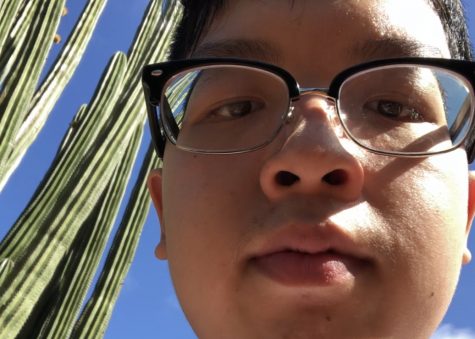Bring back the monarchy (editorial)
One benefit of a monarchy is its sustainability. History shows us that monarchies tend to last longer than many other forms of government. The imperial house of Japan is one example.
October 2, 2020
Throughout human history, people have formed societies as a better option than being alone. Plato explains the benefit of a society by pointing out that it takes advantage of each individual’s productive differences to accomplish tasks. He also explains that humans are political and social animals. Because humans have realized the necessity of societies, they continue to exist to this day. Now, with the existence of society, there must be a governing power that keeps it in order. Thomas Aquinas argues for this by saying “For where there are many men together and each one is looking after his own interest, the multitude would be broken up and scattered unless there were also an agency to take care of what appertains to the commonweal.”
Now that we have that settled, we must decide what would be the ideal form of government. One theory elaborates that a thing is more or less good based on how much it participates in or represents good. Governments have completely different properties; therefore, they can’t necessarily all be equally good. So what are our options for possible government systems and which one is the ideal for all of mankind? These options, according to LiveScience, are absolute monarchy, anarchy, authoritarian, commonwealth, communist, confederation, constitutional, constitutional democracy, constitutional monarchy, democracy, democratic republic, dictatorship, ecclesiastical, emirate, federal, federal republic, Islamic republic, Maoism, Marxism, Marxism-Leninism, monarchy, oligarchy, parliamentary democracy, parliamentary government, parliamentary monarchy, presidential, republic, socialism, sultanate, theocracy, and totalitarianism. Out of all of these, a monarchy would be the best system for all countries to have.
One benefit of a monarchy is its sustainability. History shows us that monarchies tend to last longer than many other forms of government. The imperial house of Japan is one example. The monarchy has been dated to 660 BC and is still continuing today. Other examples include the Kingdom of Norway, the Sultanate of Oman, the British Monarchy, etc. Why is this? One theory I have is that monarchs have to think more long term than leaders of other forms of government. The monarch has to keep the country in excellent condition to pass the power to his heir later. However, in a democracy such as the United States, the leader has four years of keeping the country organized and passing laws that match with his ideals. This makes it easier for a president to think, “Someone else will be elected and will fix anything I did wrong anyway.”
The monarchy also imitates nature. Thomas Aquinas explains his observations of nature’s functions by writing:
“Now, every natural governance is governance by one. In the multitude of bodily members there is one which is the principal mover, namely, the heart; and among the powers of the soul one power presides as chief, namely, the reason. Among bees there is one king bee and in the whole universe there is One God, Maker and Ruler of all things. And there is a reason for this. Every multitude is derived from unity. Wherefore, if artificial things are an imitation of natural things’ and a work of art is better according as it attains a closer likeness to what is in nature, it follows that it is best for a human multitude to be ruled by one person.”
Imitation of nature is valuable in developing systems for humans. We can reason this even from a secular point. During the process of evolution, many organisms developed intricate systems. Theoretically, these animals “decided” what is best from millions of years of experimenting. However, we must be careful with appealing to nature because humans have a much greater intellect and we must decide through reason if it is reasonable and logical to imitate a certain system in nature.
Another reason why a monarchy is an ideal form of government is that it is the most natural and nature-conforming system out there. This is different from imitating nature because this deals more with the aspects of the monarchy that aren’t exactly found naturally in non-human animals. One example of how it conforms to human nature is that it fits in with human hierarchy. Naturally, humans are not equal and people have realized this throughout history. Some people are more fit to lead than others. Therefore, we shouldn’t just let democracy decide who should lead a country, which is a really important job. A monarchy just skips straight to the point and removes the entire process of letting everyone decide who should lead the country.
These are some, but not all, reasons why a monarchy is a superior form of government that all countries should implement. Perhaps a few things could change if any problems are encountered, but the basic premise and attributes that define a monarchy should be kept.






